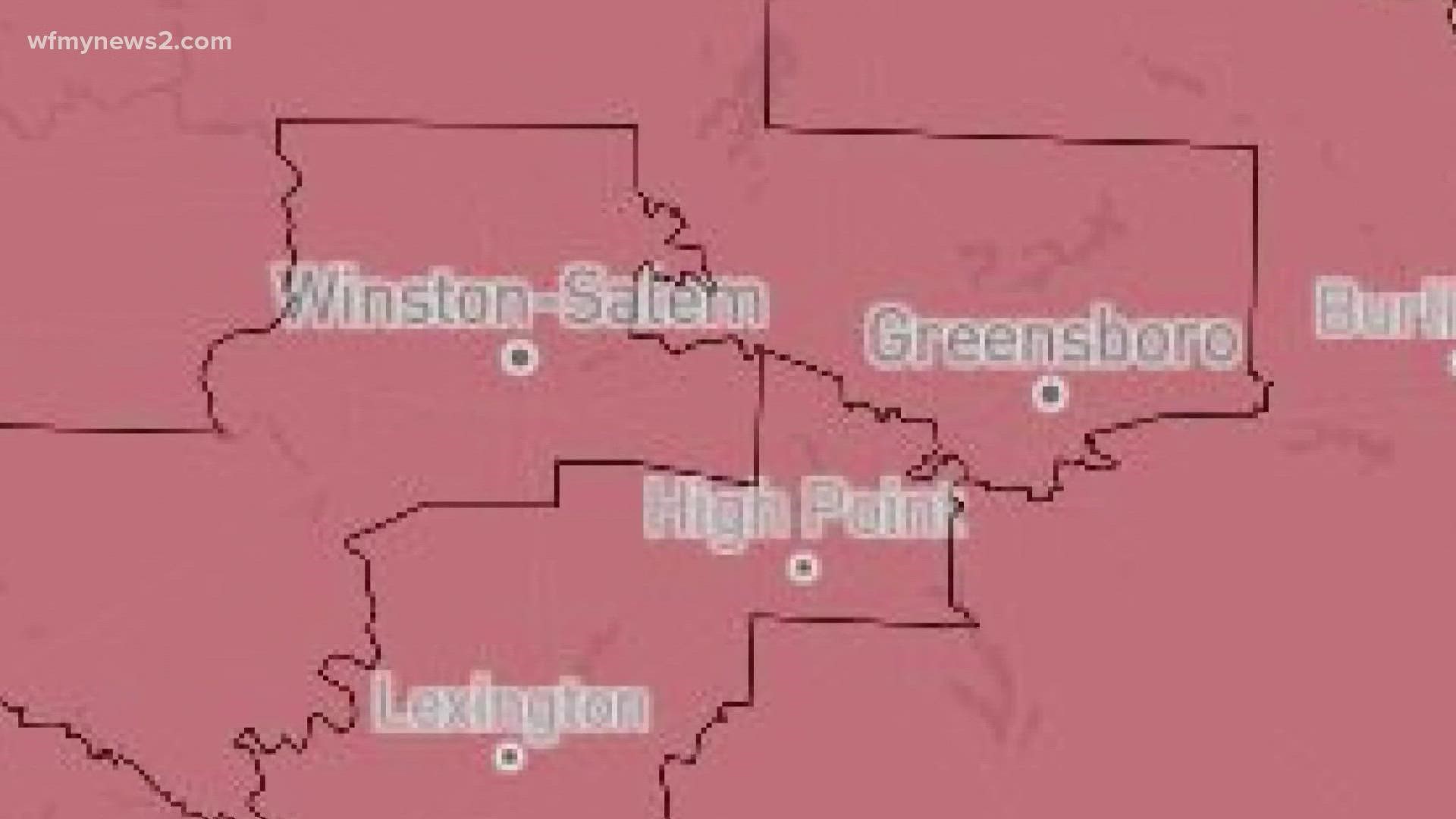RALEIGH, N.C. — The North Carolina General Assembly is nearing a vote on the redrawn congressional map. The proposed plan splits Guilford County into three congressional districts.
A new congressional map gets drawn every 10 years after U.S. Census data is collected. A state's number of congressional representatives gets determined by its proportion to the rest of the U.S. population. North Carolina gained an additional seat, giving it 14 representatives.
If the proposal passes, it puts republicans in a strong position to capture a majority of districts. Each of the Triad's major cities would have different representatives. Greensboro's representative would also represent someone in West Jefferson.
Rep. Kathy Manning (D-NC06) currently represents all of Guilford County and parts of Forsyth. She wasn't happy with the proposed changes.
"These congressional maps represent an extreme partisan gerrymander that splits communities of interest, disregards the redistricting criteria set forth by the committee and show a callous disinterest for the representation that North Carolinians requested during the public comment periods leading up to the vote," Rep. Manning said in a statement.
Gerrymandering is a political move where one party draws congressional lines in a way to give it an unfair advantage. Republicans who drew the proposed map said they did so fairly.
"These fair and legal maps were drawn in full view of the public without political or racial data – the exact process that so many have requested," Sen. Ralph Hise (R-Madison), co-chair of the Senate Redistricting Committee, said in a statement. "Only two municipalities in the entire state are split. The continuing complaints from Democrats and their lawyers show they’ll take issue with any maps that don’t give Democrats their preferred partisan advantage.”
The Princeton Gerrymandering Project judged proposed maps from across the country, including the one here in North Carolina. It graded North Carolina's map as an "F." The group said the map gives republicans a significant advantage.
North Carolina needed to redraw its maps before the 2020 election because a judge ruled the previous election map was gerrymandered. Hunter Bacot, a political science professor at UNC-Greensboro, said he expects another court battle if the proposed map gets approved.
"The unfortunate thing is it's going to be in court," Bacot said. "It's going to be in court in 2021, by 2022 it'll be heard. It'll delay the elections probably."
Bacot said the primary elections are the races most likely to be impacted.
The General Assembly plans to vote on the proposed map tomorrow.

